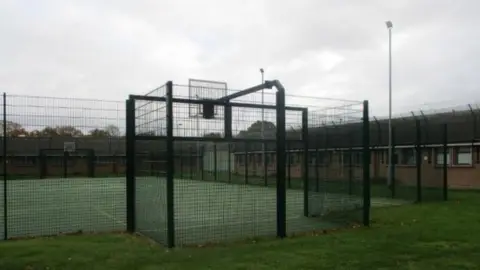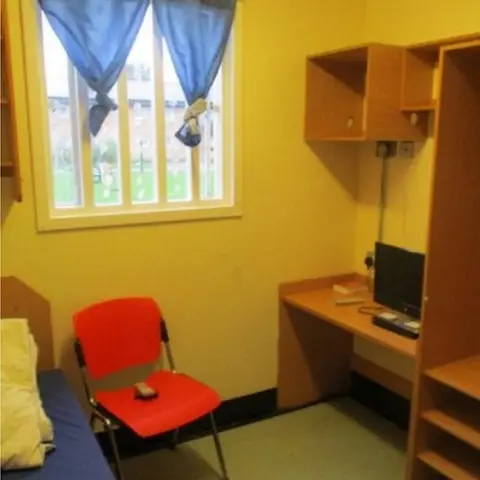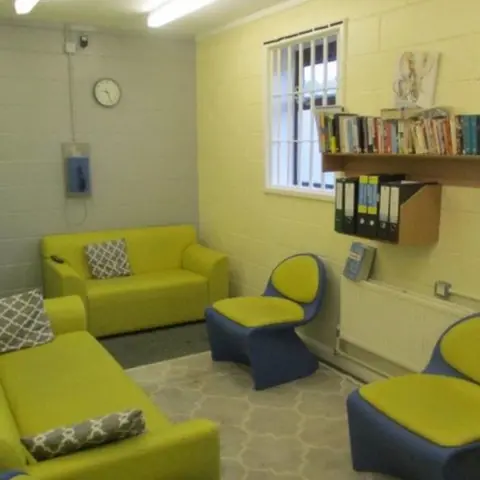Morton Hall detention centre: Concern over 'self-harm and violence'
 HM Chief Inspector of Prisons
HM Chief Inspector of PrisonsConcerns over high levels of self harm and violence at an immigration centre have been made by inspectors.
Her Majesty's Inspectorate of Prisons (HMP) said there had been 113 incidents of self-harm at Morton Hall, in Lincolnshire, over a six month period.
It said uncertainty over immigration status and potential for long-term detention caused anxiety for detainees.
The Home Office said the "utmost importance" was placed on the health and well being of detainees.
Inspectors found in a report that the centre had improved since the last visit in 2016.
The report also said care for those at risk of self-harm was "generally good", but that the 113 incidents of self harm were higher than those recorded for a similar period in the last inspection.
 HM Chief Inspector of Prisons
HM Chief Inspector of PrisonsIt said: "There were several clear indications of the vulnerability of the population. For example, levels of self harm were high and over 40 detainees had been subject to constant supervision in the previous six months because they were assessed to be at risk of imminent self-harm or self-inflicted death."
The centre is operated by the prison service on behalf of the Home Office, and holds 241 men subject to immigration control.
Detainees held for lengthy periods were often kept there because of documentation problems, a lack of suitable accommodation or casework inefficiencies, the report states.
 HM Chief Inspector of Prisons
HM Chief Inspector of PrisonsIt said although the number of detainees held for over a year had reduced, one had been held for more than two years, which was "unacceptable".
In the six months before inspectors visited in November, doctors had submitted 173 reports to the Home Office to raise concerns that a detainee's health was being affected by continued detention.
Levels of violence and use of force remained high but there were few serious incidents, inspectors found.
A Home Office spokesperson said "additional safeguards and support" had been made for vulnerable people, "such as robust monitoring and care for those at risk of self-harm, as well as an Adults at Risk policy which makes sure vulnerable individuals are only detained when the immigration factors outweigh the risk of harm".
